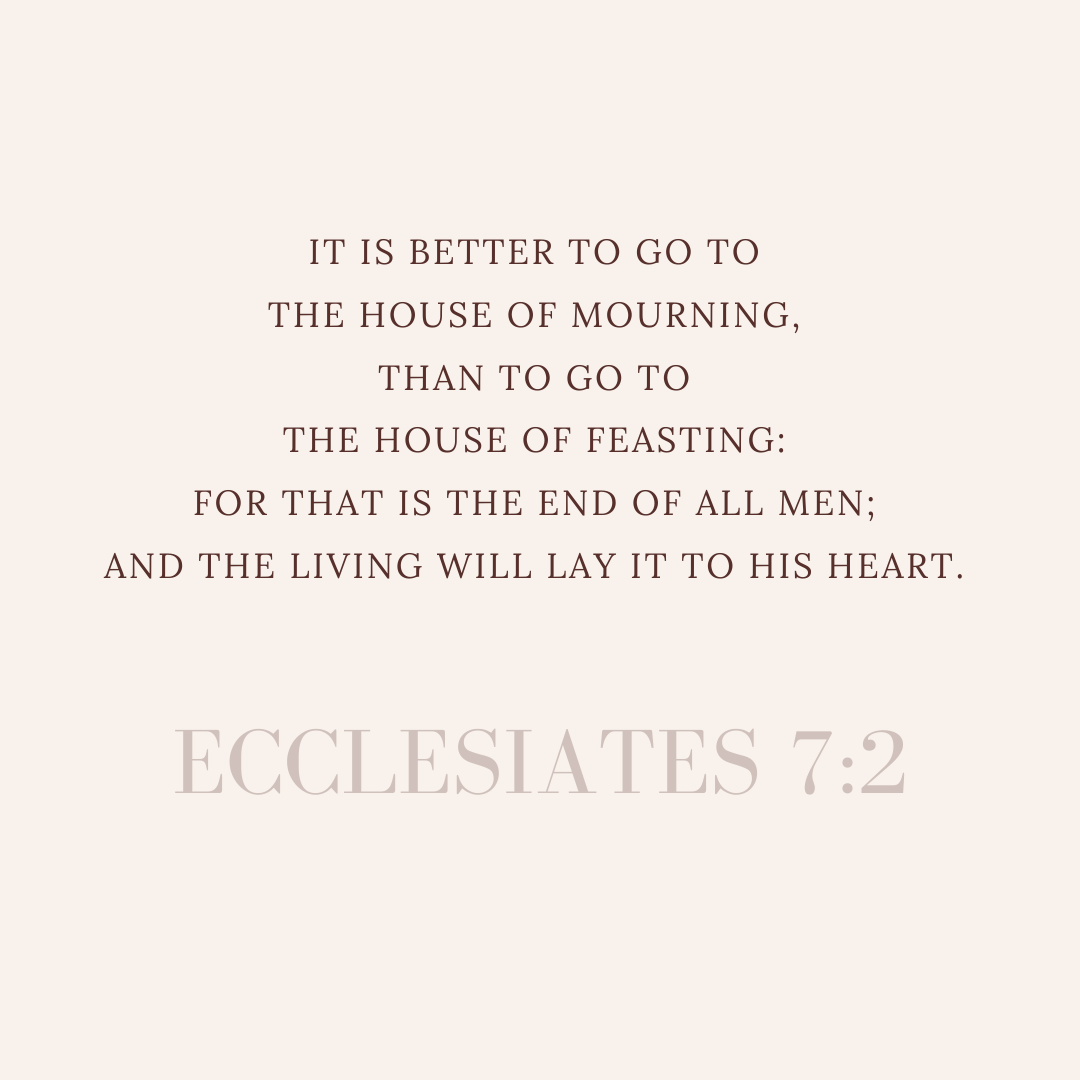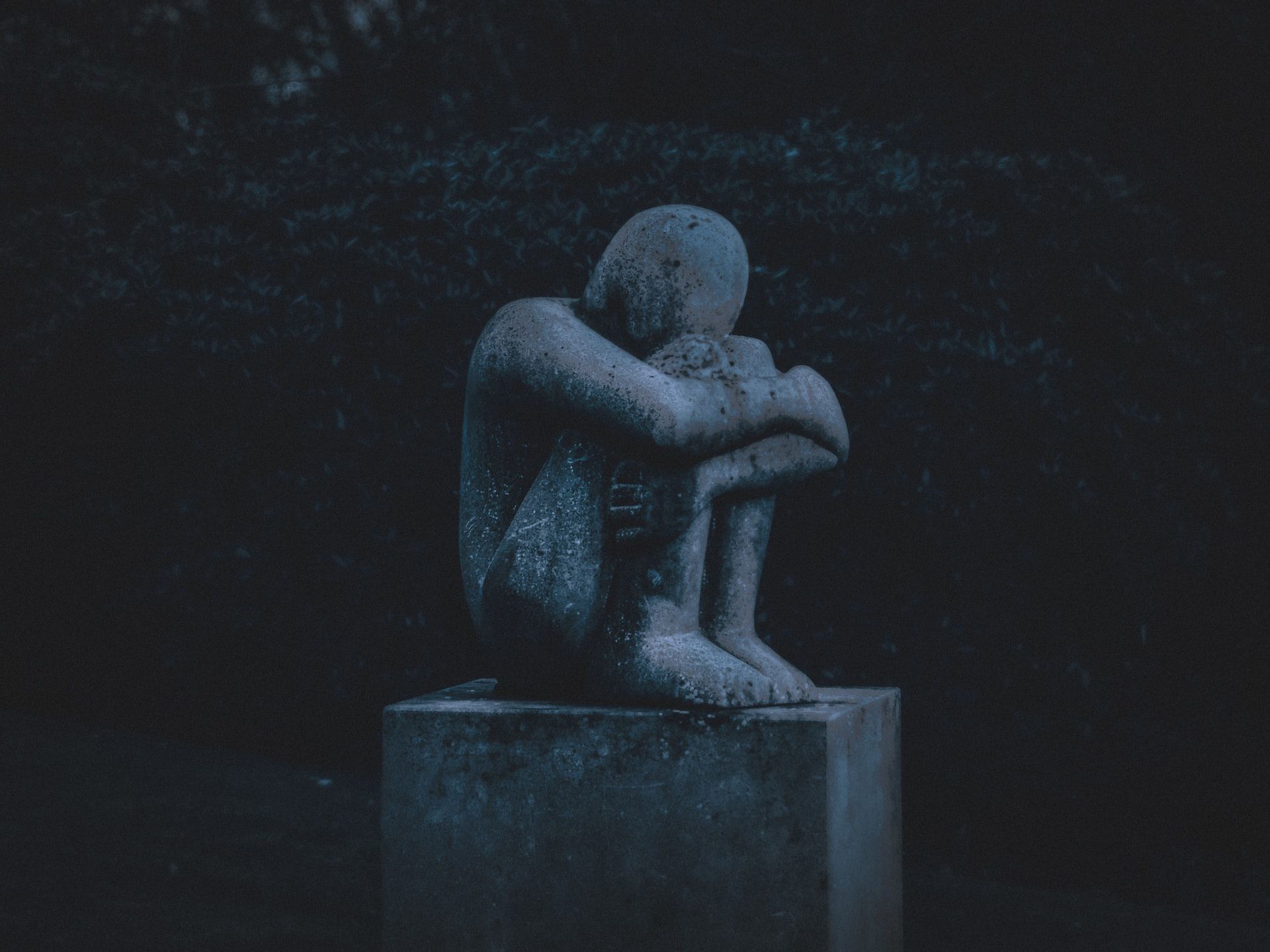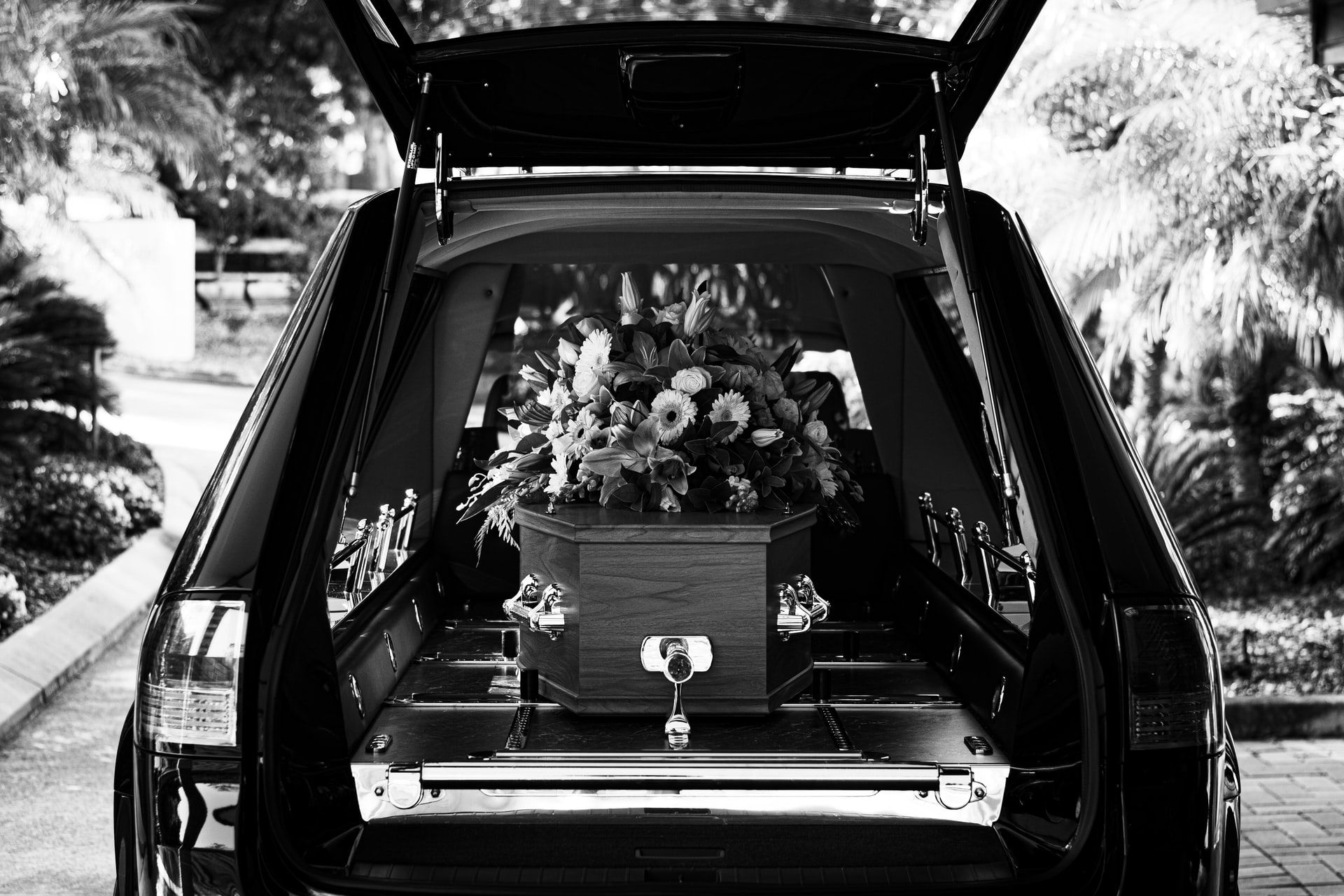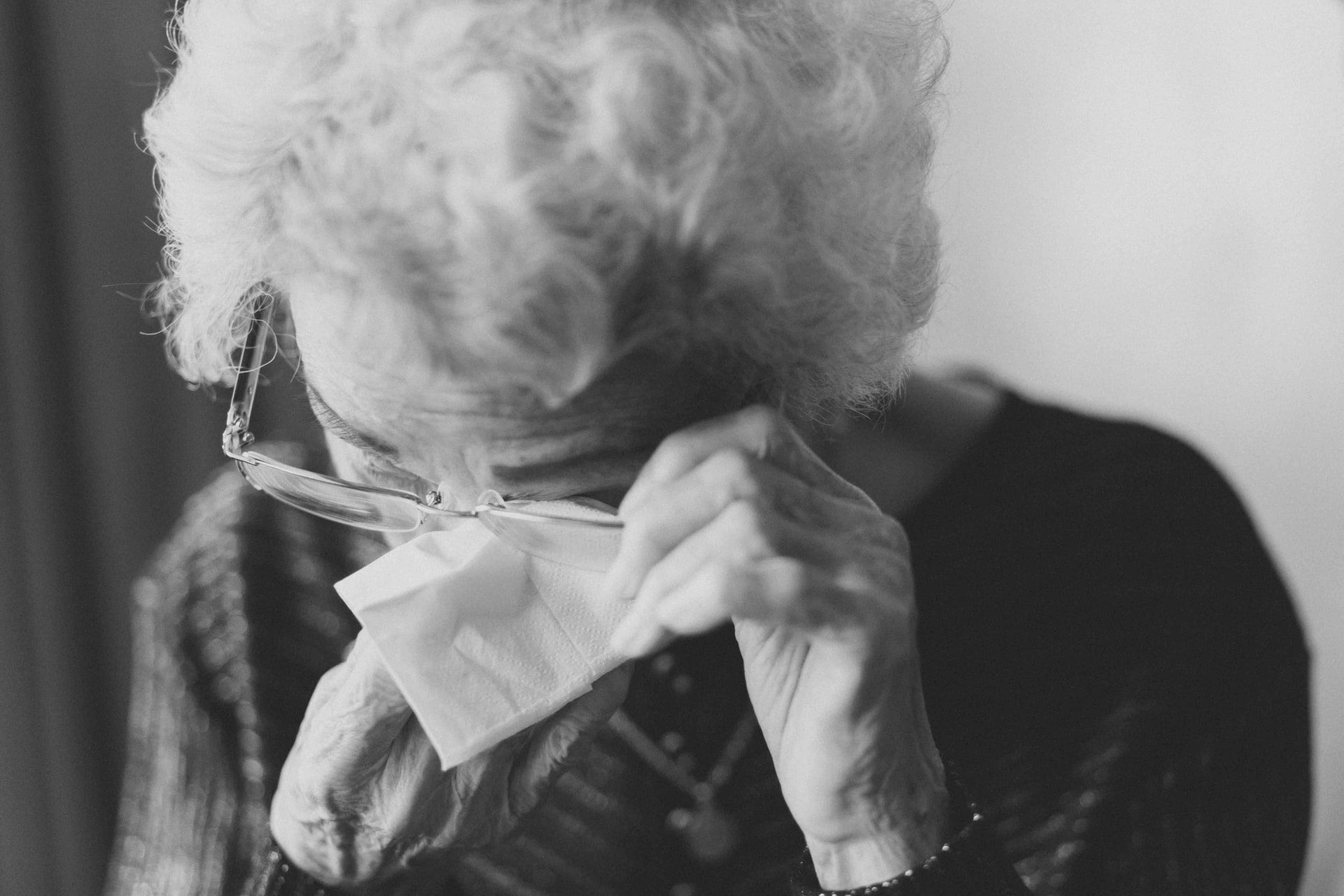Balm for the Soul

“It is better to go to the house of mourning, than to go to the house of feasting: for that is the end of all men; and the living will lay it to his heart” (Ecclesiastes 7:2).
Yesterday I went to a funeral for one of our neighbors. Funerals are a new phenomenon for me. Growing up in the broad evangelical culture, children were not mature enough to go worship and certainly not for funerals. In elementary school, one of our pastors was murdered. The children were left at home while my parents went to the funeral to grieve. In reality, I only went to a handful of funerals as a child. Then I grew up and became a pastor.
Funerals have become a mainstay of my ministry. In one six-week period, there were eight funerals. I had to quickly develop a Biblical theology of grief and funerals. Why do we grieve the way we do? Who is the funeral for? What role does the pastor play?
Why do we grieve the way we do?

Today grief is shunned. The religion of happiness reigns supreme in the American mind (cue Pharrell Williams - "Happy"). A large number of families have ditched the funeral and opted instead for a celebration of life. Now I've been to a few of these. Mechanical bulls, bands, photo booths, food trucks, balloons, and all the rest. If there's one thing that is not allowed at these parties it seems that it’s somber grief. You know, heart-wrenching tears. Weeping so badly your sides hurt. Sobbing and seeking comfort. No. That seems too raw. In a celebration of life, these emotions are to be put to the side quickly to achieve happiness. Put on your smiling face and remember the dead in your heart as the fun supposedly washes away your sadness.
That is a shallow understanding of life. A culture that cannot honestly deal with death is vapid and hollow. Death is one of the harshest realities of life. Death is held at an arms distance by most Americans. For most of our lives, death is an inconvenience and an afterthought. Americans do not live in light of death. Yet, like an intruder death bursts into our lives unwelcome. Death gnaws at every mortal. We weep. We wail. We grope for comfort amid the pain. Death tells us this life is not "Ok." Death shows us there is something wrong with the world. Deep in each human soul is the knowledge that life should not be this way. Love should not end six feet under the ground. A person motionless, colorless, lifeless is wrong.
Americans fight against the reality of death. We will no longer bury our dead but keep them in urns in our homes. We will no longer go to the house of mourning because it is better to be happy. We no longer want to see death face to face so we embalm. We no longer want to deal with the reality that it is appointed for every man to die once and after this there is judgment.
On the rare occasion when there is a more traditional funeral this theme continues. American funerals seem by and large to be all about the dead. Families want comfort. Families want hope. Families want balm for their grieving souls. Families want someone to wipe away their tears. So, Americans want to have tributes to the dead. We want to hear poems. We want to hear stories. We want to hear about the dead. While all of these may be cathartic, the relief they give is momentary.
Funerals have not always been this way. They should not be this way. There is true hope to be given. There is a Comforter who gives us words to encourage one another in light of death.
Who is a Funeral For?

As I drank coffee with one of the neighbors in town talking about a recent funeral, he told me his plans. He mentioned to his family, "Don't waste your time stopping at the church after the visitation. Just take me straight to the grave. I'm already dead. There's nothing more to be said."
I smiled at my friend and commented, "A funeral is not for the dead but the living. There's a lot more that needs said."
Baked into his comment was the idea that he's already dead and nothing else needs to be said. What about his wife of nearly 60 years? A funeral is for her comfort. What about his children? A funeral is for their comfort. What about all of us his friends? A funeral is for our comfort.
The funeral is not for the dead but the living. We go to the house of mourning to mourn. Profound I know. Time and again God commands his people to weep. Jesus wept so bitterly at the tomb of his friend Lazarus that the Jews gasped saying, "Behold how he loved him!" (John 11:36) God himself commands us, "weep with those who weep" (Romans 12:15).
God commands us to encourage one another in light of death.
13 But I do not want you to be ignorant, brethren, concerning those who have fallen asleep, lest you sorrow as others who have no hope. 14 For if we believe that Jesus died and rose again, even so God will bring with Him those who sleep in Jesus.
15 For this we say to you by the word of the Lord, that we who are alive and remain until the coming of the Lord will by no means precede those who are asleep. 16 For the Lord Himself will descend from heaven with a shout, with the voice of an archangel, and with the trumpet of God. And the dead in Christ will rise first. 17 Then we who are alive and remain shall be caught up together with them in the clouds to meet the Lord in the air. And thus, we shall always be with the Lord. 18 Therefore comfort one another with these words.
NKJV 1 Th 4:13–18.
Everyone grieves. Yet, the Christian is not to grieve as one without hope. We grieve as those with hope.
What role does a pastor play?

The pastor is to bring the gospel. The servant of Jesus is to bring the hope of Jesus. The pastor is to bring the balm of the gospel to the wounded soul. The focus of the sermon is not the person laying in the box but the one who has ascended into heaven.
At any funeral, there is only one hope, the person and work of Jesus. It is Jesus Christ who was put to death for our sins. The truest of all men tasted death. Yet it is Jesus Christ who conquered sin and death. The grave had no claim on him. The minister must liberally apply the balm of the death and resurrection of Jesus to the grieving soul. It was Jesus Christ who was put to death for our sins and raised for our justification. It is Jesus Christ who is the first fruits of the resurrection.
A pastor is a minister of the gospel of Jesus Christ. People need to look death square in the face and be called to look to Jesus. Those who weep and mourn should not be short-changed by platitudes and nice stories. Pastors have one Lord, one Savior, one hope.
There is hope to be given. Pastors are to give the hope of the resurrection. Pastors must exalt Christ. As the grieving look down weeping with tear swelled eyes the pastor is to loving lift up their chin and point them to Christ. A pastor worth his calling is to comfort the souls of the grieving with the hope found only in Jesus Christ. The Holy Spirit, the helper, the comforter, will use his word to comfort His people.
50 Now this I say, brethren, that flesh and blood cannot inherit the kingdom of God; nor does corruption inherit incorruption. 51 Behold, I tell you a mystery: We shall not all sleep, but we shall all be changed—52 in a moment, in the twinkling of an eye, at the last trumpet. For the trumpet will sound, and the dead will be raised incorruptible, and we shall be changed. 53 For this corruptible must put on incorruption, and this mortal must put on immortality. 54 So when this corruptible has put on incorruption, and this mortal has put on immortality, then shall be brought to pass the saying that is written: “Death is swallowed up in victory.”
55 “O Death, where is your sting?
O Hades, where is your victory?”
56 The sting of death is sin, and the strength of sin is the law. 57 But thanks be to God, who gives us the victory through our Lord Jesus Christ.
NKJV 1 Co 15:50–57.
What if people do not like it?

I remember during one funeral the church was packed and the mourners. They were a mixed group. He was a member of our church. My brother who had died had come from a pretty rough background. The Lord saved him in a pretty drastic way later in life. Now he was dead. Now the pews were filled with his friends and family from all walks of life.
Jesus Christ had saved him. Jesus Christ was his lord. Jesus Christ was his comfort in the darkest hours of his life. At death his soul was immediately made perfect in holiness and his body is was resting with Christ until the resurrection. Death could not separate my friend from the love of God which is in Christ Jesus.
There was only one message to give. His favorite Bible verse was Exodus 33:14:
“My Presence will go with you, and I will give you rest.”
I was bound by the word of God to tell these people where they could find rest for their souls.
Not all of them liked the message.
Yet, his widow looked up and smiled. With tears streaming down her face, her heart was warmed knowing that death is not the end of the story. Her soul was comforted as the Holy Spirit applied the balm of the gospel.
Members of the congregation, family, and friends thanked me for preaching the gospel.
Concluding Thoughts
Time and time again I've conducted funerals with a radical gospel orientation. Honestly, I did it out of ignorance. Ignorance as to what the American customs of funerals were. Time and again family and friends have come up, shaken my hand, given me a phone call, or e-mailed after the funeral and thanked me for preaching the risen Lord and Savior Jesus Christ.
Only recently has someone told me I was odd. A very upfront type of fellow sat down with me after a funeral for one of our deacons and mentioned all the things I had not done. I had not read the obituary. I had not read any poems. I had not given open microphone times. I had not rehearsed his life. He was shocked and thankful for a simple gospel-saturated funeral.
Ignorance to custom has been blissful. Knowing where the peace that surpasses all understanding has been a blessing to many. There is a balm for the soul. There is hope in the face of death. The good news of Jesus is as real as his resurrected body.
